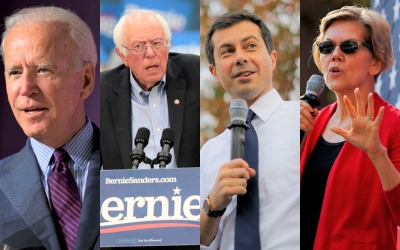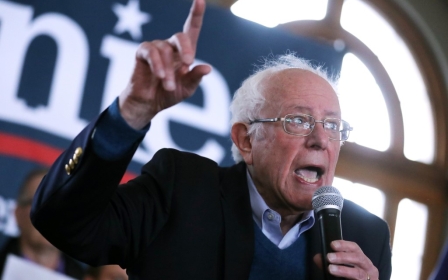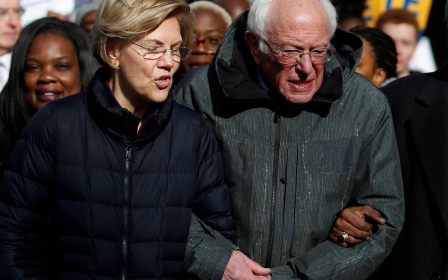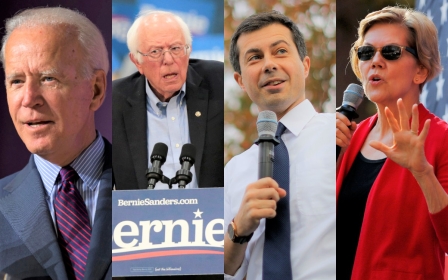Pete Buttigieg backtracks on pledge to leverage aid to Israel
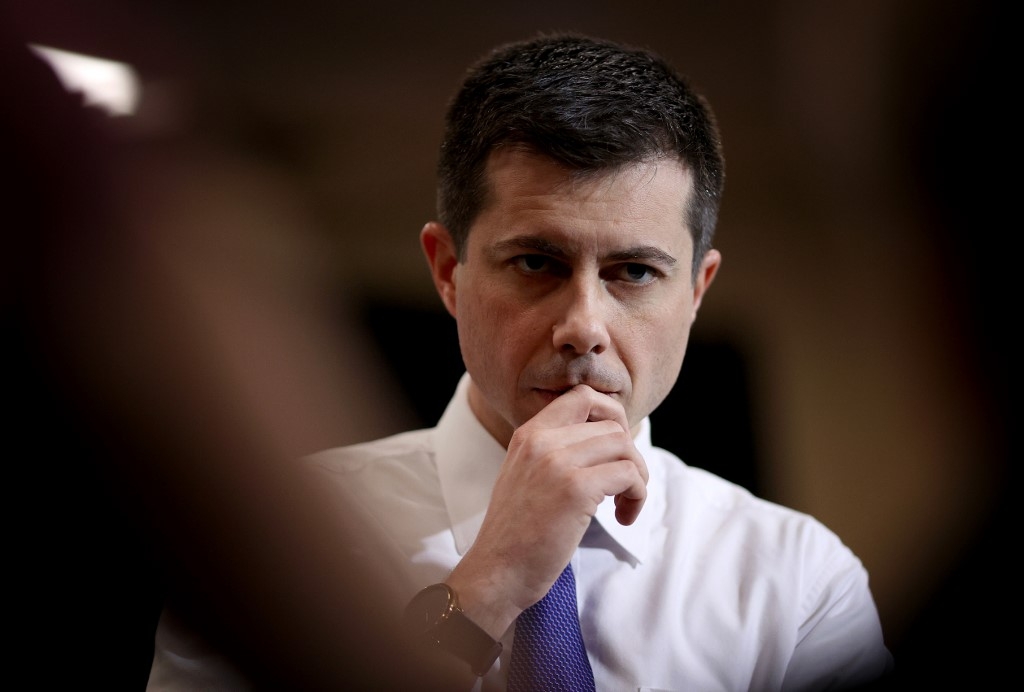
US Democratic presidential candidate Pete Buttigieg has backtracked on comments that he would leverage aid to Israel - just days before the Democratic Party's Iowa Caucus.
Speaking at a town hall meeting on Wednesday, a member of IfNotNow, an American-Jewish progressive activist group, asked Buttigieg if he was committed to withdrawing aid from Israel if it annexed illegal settlements in the occupied West Bank.
"If you're asking me whether in light of the president's proposal I would withdraw aid to Israel, the answer is no," said the former South Bend, Indiana mayor.
'The closer we get to the election, and the closer he gets to Democratic establishment donors, the more out of touch his approach becomes both with what Democrats want and what is morally right,'
- Emily Mayer, co-founder of IfNotNow
The question came a day after the Trump administration released its plan aimed at solving the Israeli-Palestinian conflict.
The long-awaited "deal of the century" document contained conceptual maps showing how Israel and a future Palestinian state would appear, if the Palestinians agreed to sign up to the plan.
New MEE newsletter: Jerusalem Dispatch
Sign up to get the latest insights and analysis on Israel-Palestine, alongside Turkey Unpacked and other MEE newsletters
The Palestinians unanimously rejected the plan, with thousands taking to the streets in towns and villages in the occupied West Bank and the Gaza Strip.
Emily Mayer, a co-founder of IfNotNow, said it seems that Buttigieg is out of touch with what is morally right, and also with the wants of the Democratic Party.
"Unfortunately, his answer yesterday makes it seem as if the closer we get to the election, and the closer he gets to Democratic establishment donors, the more out of touch his approach becomes both with what Democrats want and what is morally right," Mayer said in a statement sent to Middle East Eye.
"We hope that this was a mistake and that Buttigieg takes this moment to clarify his position that he would in fact not allow any US funds to go towards formal annexation or any of the violence of the occupation."
US aid should be given to Gaza
Buttigieg, who currently trails in fourth according to the latest polls of the Democratic presidential primaries, has repeatedly changed his stance on the issue as the 2020 election edges closer.
In a Democratic debate in December, he avoided answering a question about the expansion of illegal Israeli settlements and linking it to foreign aid.
In October, Buttigieg supported the idea, saying he would commit to the conditioning of aid to any moves of annexation.
"I think that aid is leverage to guide Israel in the right direction," Buttigieg said at the University of Chicago.
"If, for example, there is follow-through on these threats of annexation, I'm committed to ensuring that the US is not footing the bill for that."
Other presidential candidates, such as Vermont Senator Bernie Sanders, who is currently leading in the polls ahead of this weekend's Iowa Caucus, and Massachusetts Senator Elizabeth Warren, have both said they are willing to leverage aid to Israel.
Sanders has gone even further, saying that part of the aid Israel receives from the US should be given to Gaza.
The first main hurdle of the 2020 US presidential campaign comes on 3 February, when candidates vying for the Republican and Democratic party nominations compete in the Iowa caucus.
In 2018, the US Senate passed a $38bn defence aid package for Israel over 10 years, the most generous deal ever agreed to by the US.
The deal, signed under the Obama administration, includes financing for Israel's missile defence systems and its purchase of other weaponry.
Middle East Eye delivers independent and unrivalled coverage and analysis of the Middle East, North Africa and beyond. To learn more about republishing this content and the associated fees, please fill out this form. More about MEE can be found here.


